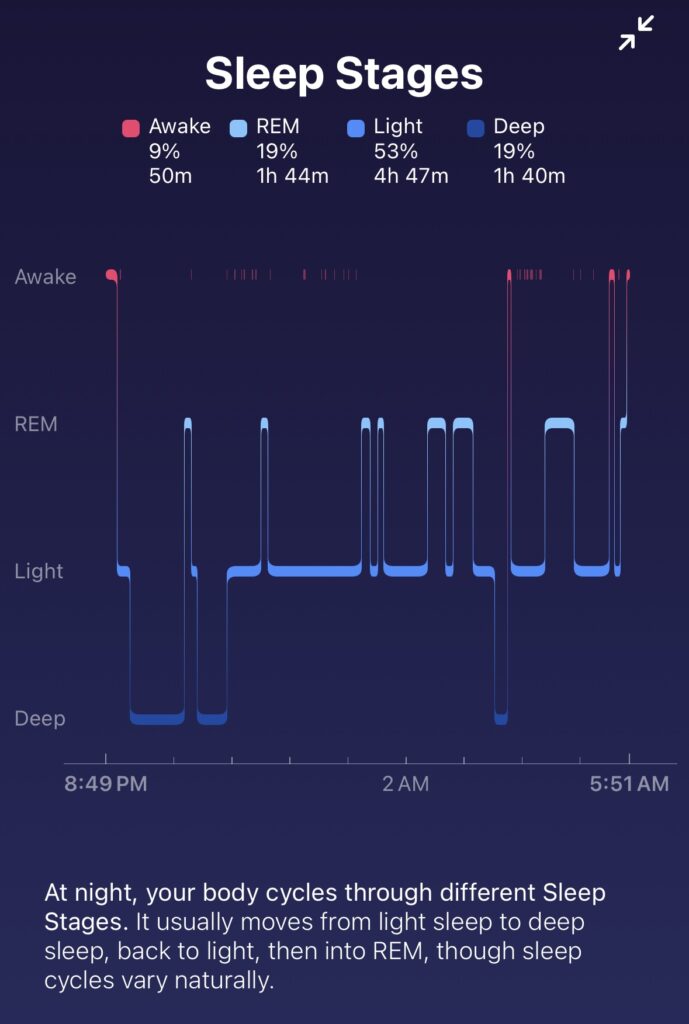As a wannabe scientist hungry for more knowledge on health and nutrition research, I was thrilled to learn of the All of Us Research Program a few years ago.
Over the last ~1.5 years, I’ve been able to participate in various health and nutrition research studies, learn about my genetics, and hopefully understand other aspects of my individual health as the program continues.
Disclaimer: I am not professionally affiliated with, nor do I have a financial interest in the success of, the All of Us program.
What is All of Us?
The All of Us Research Program is a federally funded (National Institutes of Health or NIH) initiative to build a diverse health database of 1 million+ Americans to learn how biology, lifestyle, and environmental factors affect health. Researchers will be able to leverage this data to conduct studies that hope to help understand, prevent, and treat disease.
Getting Involved
Enrolling to participate is completely voluntary, as is all the data we choose to provide. The easiest way to sign up is directly through the All of Us website (joinallofus.org).
Once enrolled, you will have the option to contribute various types of health data including:
- Measurements and vitals such as height, weight, blood pressure, and heart rate
- Biological samples such as blood, saliva, hair and nails
- Electronic health record (EHR) data (i.e., historical data on doctor visits, medications, procedures, etc.)
- Environmental, behavioral, and physical performance data through surveys and wearable devices
Depending on the type and extent of data shared, you will have access to analyses and research projects. For example, providing biological samples will provide the opportunity to learn about your genetics via reports on food sensitivities, disease risk, and more.
What Research Studies Are Currently Available?
Perhaps the most exciting part of being enrolled in All of Us is the opportunity to participate in research studies to learn even more about our individual health. While there are only a few studies currently underway, the program is in its early days and the expectation is for many more to initiate over time.
WEAR – the WEAR study is a research project designed to collect physical and behavioral data from 10,000 participants via an activity tracker (Fitbit). Participants are asked to connect and share data a program-provided Fitbit for at least a year.
I’ve found the sleep data to be particularly valuable in understanding my wakefulness during the night, quantity and quality of sleep, and true resting heart rate.

Nutrition for Precision Health (NPH) – Nutrition for Precision Health is a clinical research study that seeks to generate data to understand how individuals respond to certain foods and diets. The NIH’s broader aspiration for nutrition research is precision nutrition, or the ability to tailor an individual’s diet to their genes, culture, and environment to optimize health.
There are three modules in NPH (so far):
- Module 1 (Usual Meal Phase) – the first module consists of eating your normal diet for 8-10 days and recording food consumption, either in an online tracker or wearing a pair of glasses that captures photos of food. Following the manual tracking period, participants visit a study location to undergo a liquid mixed meal tolerance test (MMTT): after drinking a provided shake, blood samples are taken at specified intervals and analyzed to understand how the body responds to the meal.
- *Note: Modules 2 and 3 are only available to participants who completed Module 1
- Module 2 (Provided Meal Phase; At-Home Study) – the second module consists of three, two-week periods of eating study-provided meals and snacks, separated by two-week “washout” or rest periods where subjects eat their usual diet. The three diets intentionally vary in their nutrient profiles (i.e., carbohydrate, protein, fat, etc.), as means to gather additional data on how individuals respond to certain diets. MMTTs are conducted following each two-week diet period.
- Module 3 (Provided Meal Phase; Live-In Study) – the third module is identical to Module 2, except that participants live at a study location (e.g., hospital) for each of the two-week diet periods. The study is designed this way presumably in an effort to more closely monitor variables that may influence an individual’s response to the diet, such as sleep, physical activity, and other factors. MMTTs are conducted following each two-week diet period.
A common benefit to participating in studies like these is access to more frequent physical and biological testing. For example, a blood sample and complete blood count (CBC) test is performed for almost every study or module, the results of which are provided to the participant. Typically, insurance only covers these types of tests once per year, so it is advantageous to have access to this information more frequently, and at no cost, to better monitor our health markers.
Summary
The All of Us program currently provides several opportunities to participate in research to learn more about our health, from genomics to metabolomics. As the program continues to enroll and more data is gathered, additional research studies should be initiated.
Further, health insurance generally covers preventative visits and tests only once per year. As such, it is helpful to leverage resources that enable us to obtain more frequent updates on our health as means to make or evaluate the impact of changes to our lifestyle if/as needed.
Additional Links and Resources
- About All of Us
- Nutrition for Precision Health
